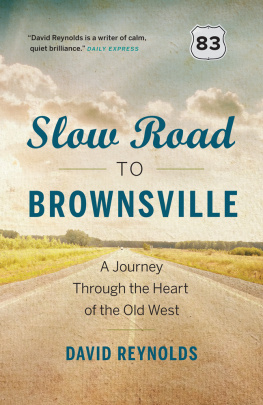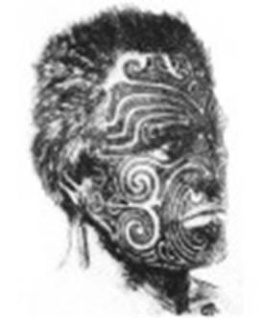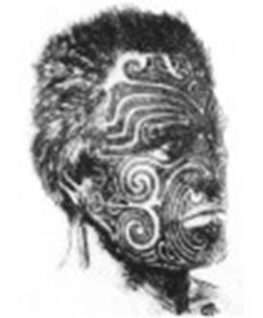BACK TO ANATORI
Henriette Fleischer
Dedication
This book is dedicated to all my women friends who have shared with me and helped me to survive the experience of living alone.
Disclaimer:
The people and events in this book are purely fictional. Any resemblance to real people and events is entirely coincidental and completely unintentional.
The place-names, natural settings, buildings and landscapes, however, are real.
Bridget drove into Collingwood on a Friday in the heat of February. The small, quaint township in the far north-west of Golden Bay, at the top of the South Island of New Zealand, was going to be her new home and playground in life. As her little car curved around and down the hill and the magnificent beauty of the Aorere Estuary came into view, her heart started beating a little faster. She was on the brink of an exciting adventure and pangs of fear were mingled with happy anticipation.
Bridgets eyes darted around to take in all the new sights, new and yet, oh so familiar. She surveyed the main street: the fire station, the museum, the large garage which was the base for the Farewell Spit tours, the old Post Office building (now a second-hand furniture shop with the owner living in a flat at the back), the tea rooms, the hotel, the Public Hall, the grocery store, a few houses and some motels. She was looking forward to perusing the second-hand furniture store to find the things she would need to furnish her house. That was all there was to Collingwood. Well, almost. On the hill directly behind the township, out of sight, stood the Collingwood Area School and a whole long street of houses, half-hidden in the bush, overlooking the township, the estuary and the bay.
Bridget wondered if she would settle here for the rest of her life, maybe even die here
The cottage she had bought six weeks earlier was old and quaint, settled on a section behind the Courthouse Caf, right at the beginning of the main street. Bridget stood in front of it and took in every detail, greeting it as if it had a personality a soul. It was clad in painted weatherboard and crowned with a colonial-red corrugated iron roof. There was a little veranda in front and an enclosed porch you had to walk through to get inside, into a tiny kitchen with a red Formica sink bench and imitation wood wall-board she wasnt sure she would be able to live with. They would have to be painted over. There were three bedrooms, and fairly new carpet covered the uneven timber floors. Small windows looked out onto an old-fashioned garden and the road that led to the beach. The lounge, to her delight, had old, wooden French doors opening out onto the veranda and faced west, to catch the golden afternoon and setting sun. Sitting there, she would be able to take in the breathtaking view of the Wakamarama Range, rolled out majestically in the west. She would be able to enjoy the sun setting over these dark hills in the evening, often casting an orange glow over the township or painting the estuary blood-red. She imagined herself sunk into an old, cane chair, relaxed and happy, a cup of tea or glass of ginger wine in her hand, reflecting on her day.
Her hands trembling, she inserted the key into the front door and stepped into the house. It smelt musty from having sat empty for one winter. Its last occupant, old Mrs Dallimore, had moved into the Rest Home on the hill at the beginning of winter, having lived there alone for fifteen lonely years after her husband died. The walls were papered in 1950s wallpaper. It was ever so humble. But three adequate bedrooms meant Bridget could have friends and family to stay. Maybe even paying guests ...
Mrs Dallimores presence still hung around a bit, she felt, but she thought it could be dissipated quickly with some fresh air and her own energies, thoughts and feelings. She had made the right choice, or maybe shed been guided here Quaint. Quaint. Quaint, had been the overstatement on the real estate agents leaflet. Nearly a hundred years old, private, sheltered, rarely found these days. Bridget was in agreement.
The garden had many established shrubs and trees: tall tree-ferns, old fashioned, dark pink hydrangeas, heavenly-scented daphne, a crimson camellia, a rambling pale yellow rose and a mauve wisteria framing the porch. Of course, the daphne and wisteria had long since flowered. The cottage was a beige colour and behind it was a small stand of native bush a remnant of a forest that once must have covered much of the land where the township now stands. Bellbirds, tuis, native pigeons, warblers, fantails and wax-eyes were always around, Bridget had noticed. And one could always hear seagulls and oystercatchers just a hundred metres away, plaintively crying over the beach and the bay.
Bridget viewed the house as an old lady who would have seen and heard much within the confines of her walls. Births and deaths, marriage break-ups, heart-aches, fights, worries, celebrations, joys and lonely times. Longings, wishes, dreams, laughter and regrets. And now it was Bridgets turn to enter and show the old lady some new things. A part of her chuckled at the thought. Shocking things? She was, after all, a modern woman - if a woman in her early fifties could be called that. She was single, child-free, self-reliant, independent, self-confident and, maybe, even sexually liberated. She wasnt sure about that last one. Although Mrs Dallimore would surely think so if she knew Bridgets past, in which a fair number of lovers and partners had come and gone.
But now it was time to be by herself - alone in the world. Well, for a while anyway. It felt like the right thing at this point in her life. She had just turned fifty and resigned from her long years of teaching English. She was undoubtedly at a turning point in her life. She felt as if she stood at the beginning of a new period of adventure and unprecedented freedom.
She put down two large bags containing some clothes and precious items, (a valuable painting, a sculpture, jewellery), on the floor of the living room, opened all the windows and doors and entered every room with a greeting and a critical look around. Her friend Holly would be arriving soon with a van-load of her possessions: her stereo, photographs, paintings, lamps, crockery and cutlery, pots and pans, a heater and other electrical appliances, and some bedding so she could sleep in the cottage that night. She was going to buy all her furniture from the second-hand shop in the village.
Bridget decided to waste no time and, after turning on the power, headed for the shop, driven by the need for a bed to sleep in that night.
The second-hand store was typical of small, rural New Zealand towns. Smelling of dust and old wooden furniture, rimu, oak and mahogany, all stacked up tight against each other with little room to manoeuvre between. Every step Bridget took through that store had her excited with anticipation of finding something she was going to love.
And she did. She walked out of the store an hour later knowing that she had what it took to turn the empty cottage into a home: an old oak double bed with rubber mattress, a small, oval, wooden dining table with four chairs, a chest of drawers, an old-fashioned, rolled-back sofa, a coffee table, bookcase and a wall unit. That was all she needed for the time being, until she had painted the walls of the spare bedrooms and could furnish them. The only thing she could not find was a desk ... an old, wooden one with drawers was what she had set her heart on. The owner of the shop, who introduced himself as Joe, offered to ring her if one came in. He said he would load her furniture onto his pick-up truck and deliver them in an hour.
So what brings you here to this corner of the woods? the slightly-dishevelled-looking man of sssssssindefinable age had asked with a good country accent, his deep-set eyes twinkling with curiosity.
Next page











